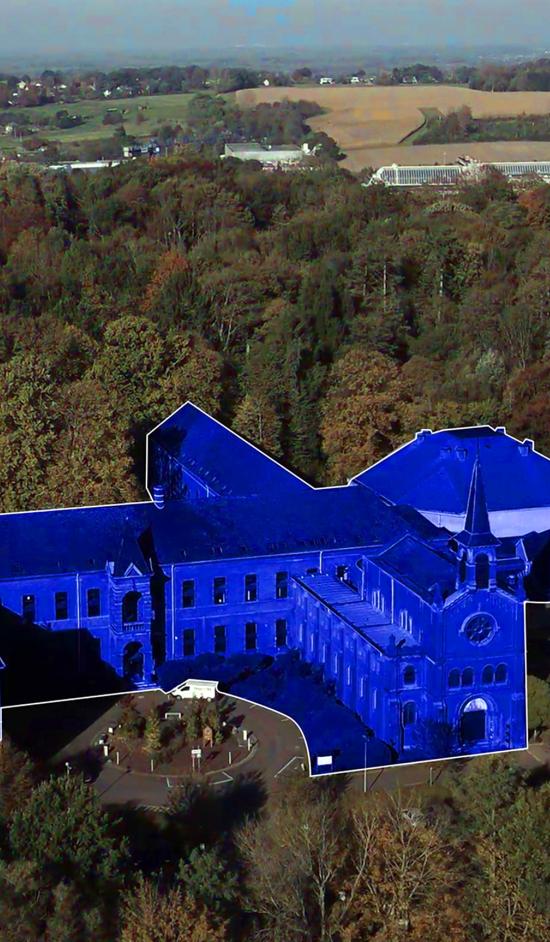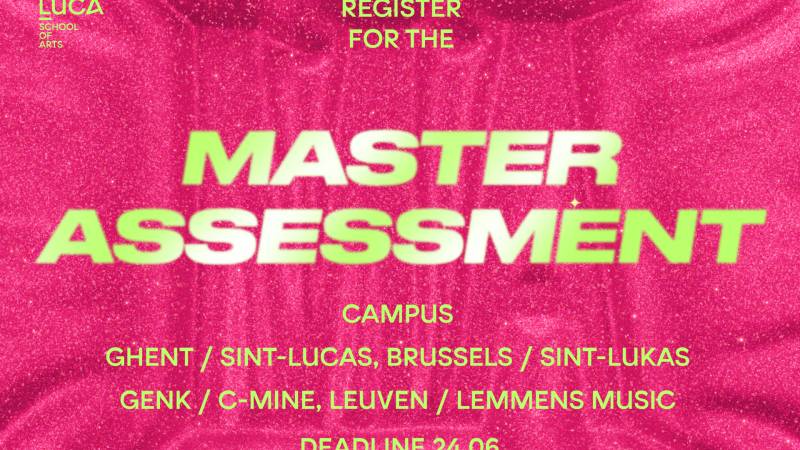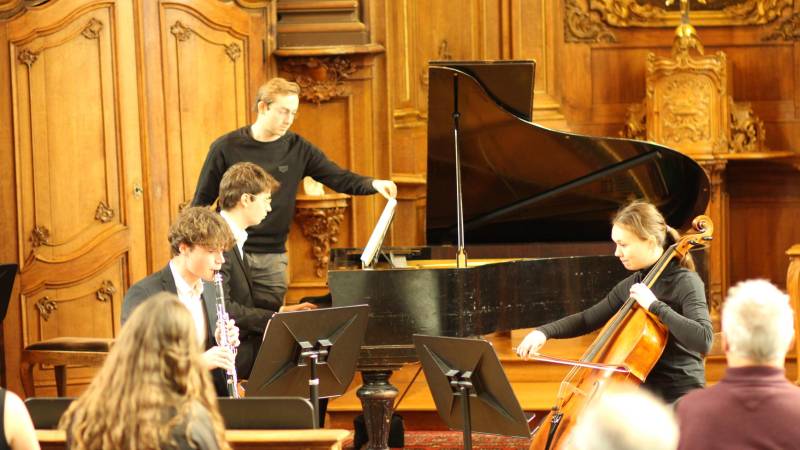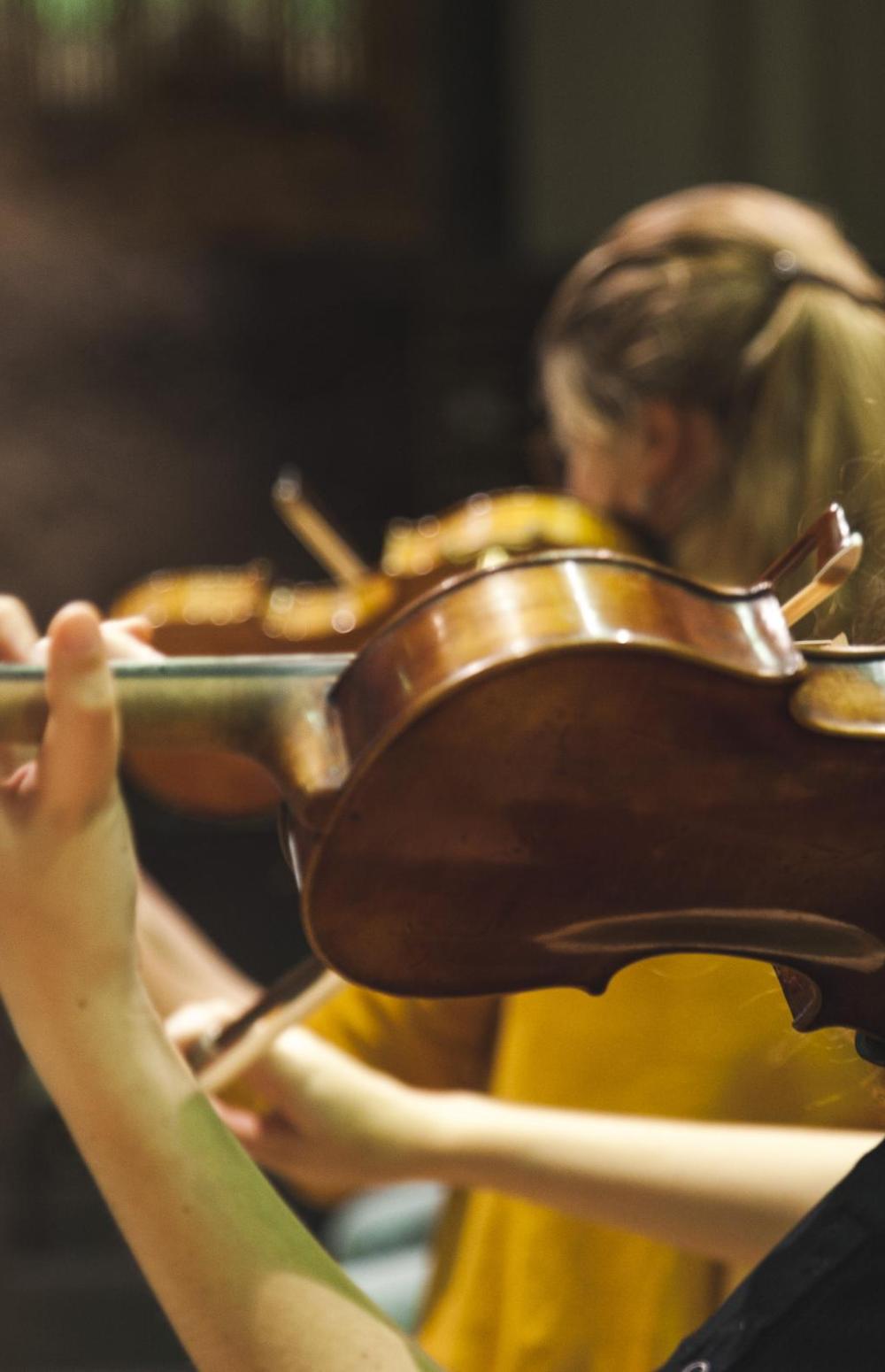
Campus Leuven / Lemmens
Classical Performance Exchange
The Classical Performance programme of Luca School of Arts is an inspiring and creative environment for European students, a setting in one of the main university cities in Europe. We offer different majors: voice, accordion, guitar, harp, strings, piano, organ, brass instruments, wind instruments, percussion and marimba.
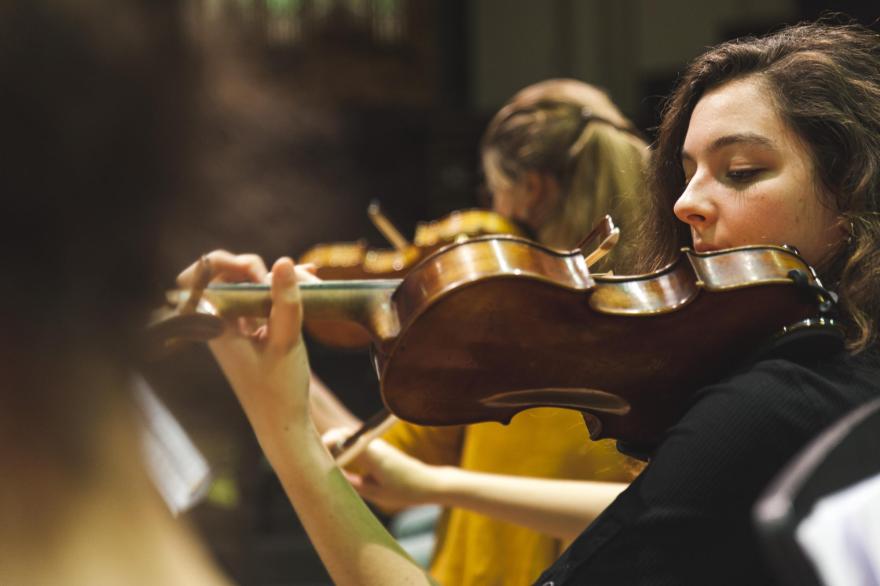
The Bachelor and Master program focuses on an instrumental and artistic development towards a professional musician, soloistic and orchestral training, projects, research and entrepreneurship. Chamber music and ensemble playing, in all its diversity, are strongly anchored, with student performances, lunch and evening concerts, in- and outside.
Guided by a team of international renowned teachers and soloists, we also offer additional master classes, workshops and concerts with leading artists. Our students are into a strong and inquisitive performer, transferring their knowledge and skills to others and managing their own musical future.
First Semester:
|
Component code |
Course name | ECTS credits |
|---|---|---|
| L43057 | Mainistrument I/Z | 12 |
| L43350 | Chamber Music | 3 |
| L43057 | Ensembles | 3 |
| Elective options (minimum 12 ECTS to be chosen) | ||
| L43081 | Eartraining - Rhythm - Harmony | 6 |
| L43356 | Professional Toolkit | 3 |
| L43185 | 1MA Atelier Orchestral Instruments | 6 |
| L43189 | 1MA Atelier New Music | 6 |
| L43186 | 1MA Atelier Folk Music | 6 |
| L43288 | Transposition for Saxophonists | 3 |
| L43102 | Singer Songwriter | 3 |
| Total |
30 |
Second Semester:
| Component code | Course name | ECTS credits |
|---|---|---|
| L43112 | Maininstrument I/Z | 12 |
| L43345 | Chamber music | 3 |
| L43346 | Ensembles | 3 |
| Elective options (minimum 12 ECTS to be chosen) | ||
| L42758 | CrossLab 1 | 3 |
| L43114 | Eartraining- Rhythm - Harmony | 6 |
| L43188 | 1MA Atelier Early Music | 6 |
| L43190 | 1MA Atelier Scenic Awareness for Singers | 6 |
| L43289 | Transposition for Saxophonists | 3 |
| L43354 | Professional Toolkit | 3 |
| Total | 30 |
NOTE: Keep in mind, this page is not definitive, changes might still occur.
"I came for my main subject teacher, but stayed with LUCA for everything else."
Masterclasses, symposia and intense practical experiences
Every year, the program organizes interesting masterclasses, workshops and clinics with external experts, renowned foreign instrumentalists, music therapists and pedagogues. Music practice is central to our campus. You not only make music during your practical lessons or self-study but also participate in our ensembles, choirs and orchestras and the prestigious artistic productions. These experiences transform you into a team player.
Cross overs
LUCA School of Arts is a biotope in which collaboration between students from different art disciplines is stimulated. This results in interesting crossovers and innovative artistic practices.
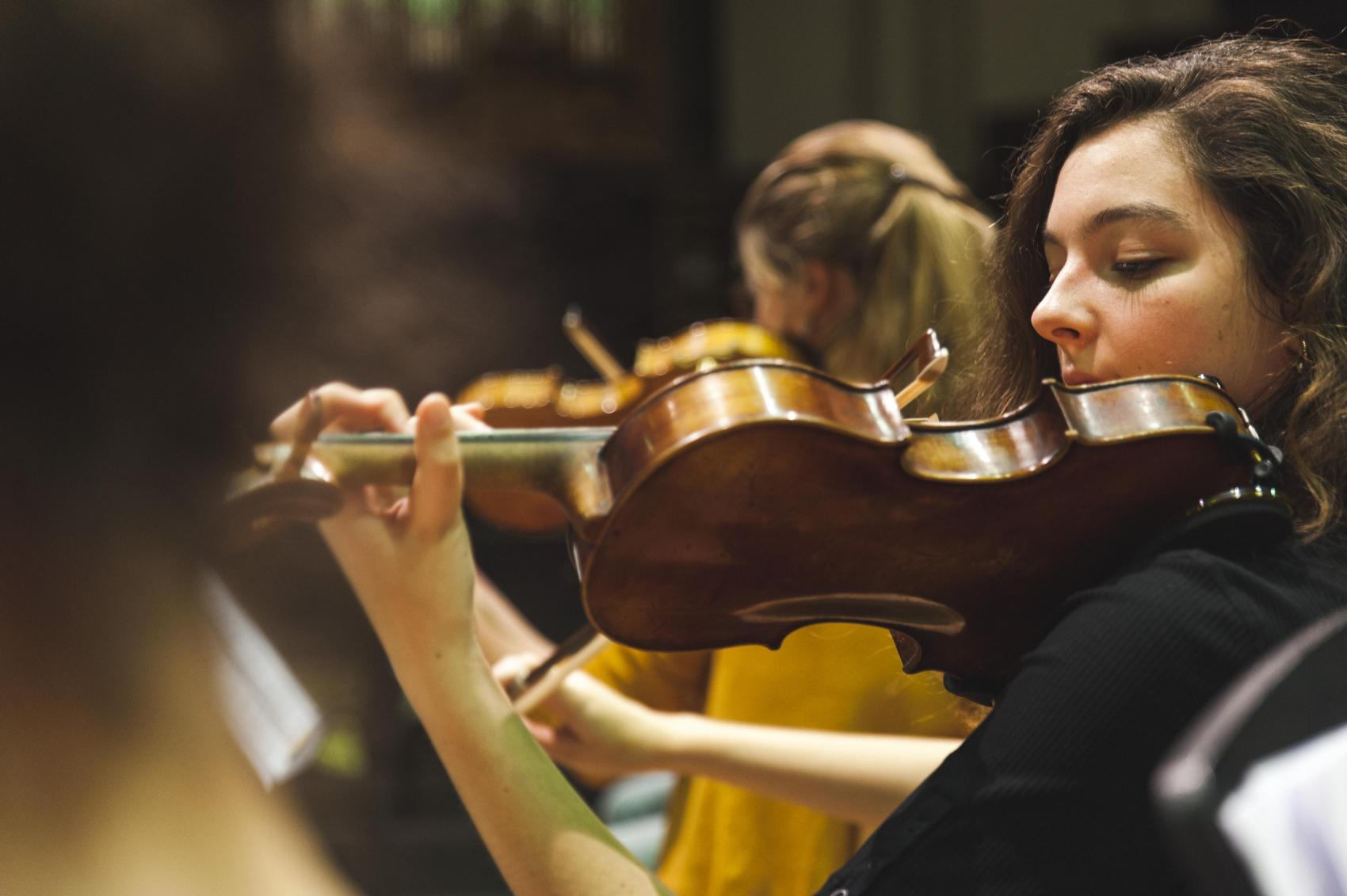
A good command of English (level B2) is required to make the most of your stay with us. Campus Lemmens does not own student accommodation. Therefore, you will have to rent a room on the private housing market for the duration of your stay. To help you in your search, please visit the website of the KUL or contact our student support services.
Interested in this course?
All Erasmus+ Exchange Students need to apply via the exchange application procedure of LUCA School of Arts. During your application process, you can indicate the LUCA campus of your choice and the exchange programme you wish to apply for. Notice that not all programmes are open for incoming exchange students in both semesters. An overview can be found here.
- The deadline for the Autumn Semester / full year is April 1
- The deadline for the Spring Semester is October 1
Outcome Exchange Application
The outcome of the application can be expected within 4-6 weeks after the application deadline. Both you and your international coordinator will be informed about the result of your application by e-mail. No need to inquire about the outcome yourself.
Where do you have class?
Facilities & campus life
- Our very own campus, situated in a parc in one of Europe's oldest university towns
- An artistic meeting space for theater maker and musicians
- A coworking space with rehearsal studio's concert halls and theater venues
- An art centre with concerts, performances and theater shows, lectures and artist talks, book launches, graduation shows and showcases
- An expertise centre for young perfomnce artists with an art library, production support and a lending service
- An intricate network of cultural partners where students rehears and show the results of their projects
Location
Lemmensberg 3
3000 Leuven
info.lemmens@luca-arts.be
+32 2 447 15 00
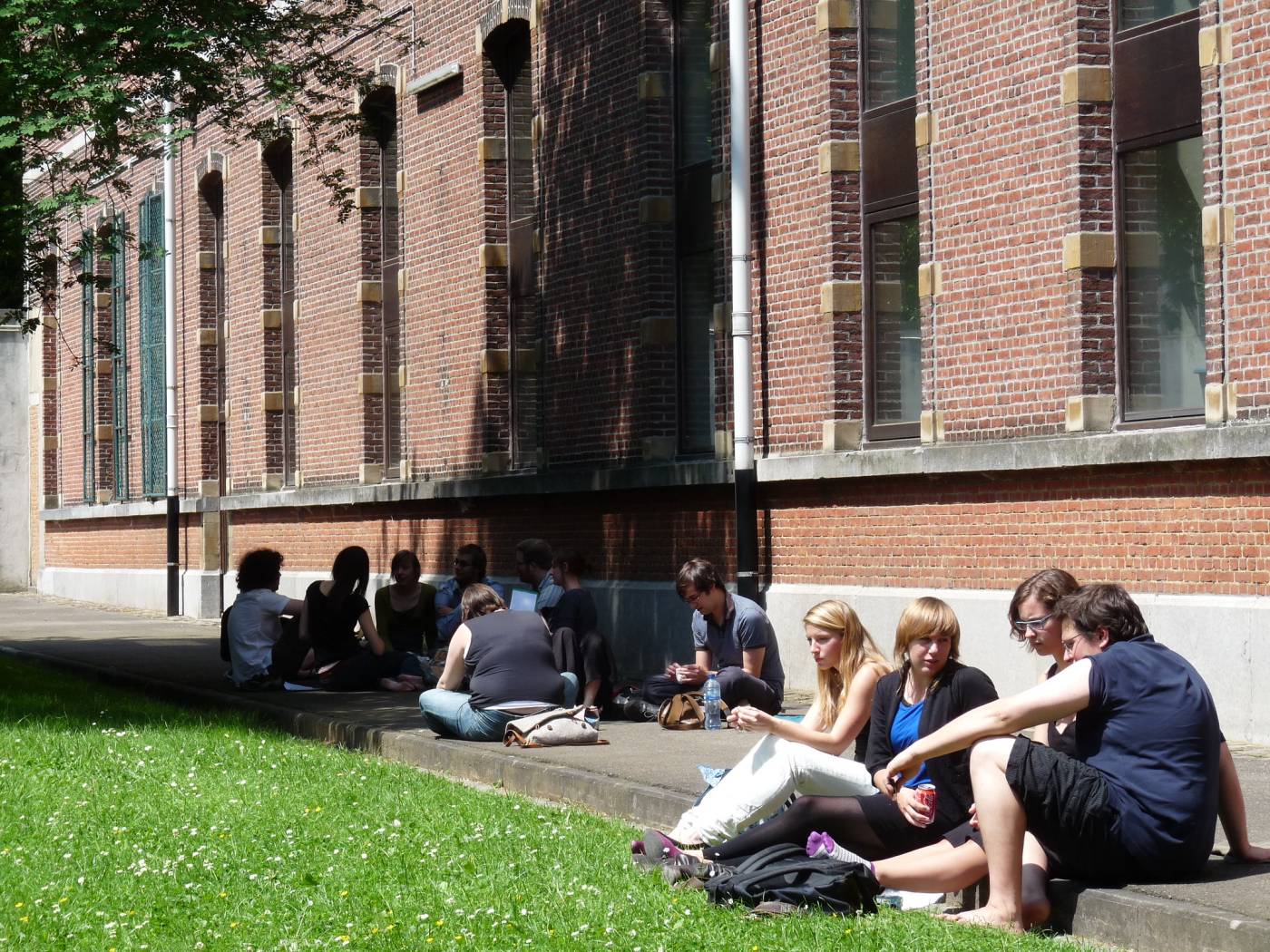
Contact
If you need more information, don't hesitate to contact us:
International Coordinator Campus Lemmens
Diana Solomonidou
diana.solomonidou@luca-arts.be
Campus Lemmens
Lemmensberg 3
3000 Leuven
+32 2 447 15 00
info.lemmens@luca-arts.be
At LUCA we attach great importance to the quality of our courses
If the basic principle of the policy plan means that 'quality is our driving force', and that every aspect of the policy can be tested against this, then LUCA undeniably wants to develop and nurture a strong quality culture: a culture that leaves based on trust in people with talent and expertise, and which is aimed at valuing, inspiring and improving.
The formal quality framework for training within LUCA was named KOPERA, which stands for: Critically Analyzing the Quality of Training with Peers in Own Direction.
For KOPERA, LUCA starts from a vision of quality care that is based on trust and aimed at valuing, inspiring and improving.
During the six-year KOPERA cycle, each training course receives a panel of critical friends who examine the implementation of the quality characteristics and examine how the training contributes to the general LUCA policy.
The final element of KOPERA is the ultimate assurance of training quality. The key question is: "Does the program have a good quality culture that follows the 'plan-do-check-act' circle?"
LUCA publishes a quality sheet for each course. You can find this on the Education Quality page.
| Art in Context | David Lodewyckx | Bart Geerts |
| Maxime Waladi | Barbara Vandendriessche | |
| Art Philosophy | Annelies Monseré | |
| Chamber Music | Ludwig Albert | |
| Benny Wiame | Christel Kessels | |
| Griet Cornelis | Geert De Bièvre | |
| João Carlos Victor | ||
| Roeland Hendrikx | ||
| Choir | Kurt Bikkembergs | |
| Ear Training | Jos De Rijck | Bart Van Caenegem |
| Early Music (Atelier) | Alamire Foundation | |
| Folk Music (Atelier) | Pieterjan Van Kerckhoven | |
| Harmony | Geert Van der Straeten | Kris Wittevrongel |
| Lut Verbeke | ||
| Music Analysis | Jeroen D'hoe | |
| Music History | David Lodewyckx | |
| New Music (Atelier) | Geert De Bièvre | |
| Opera | Thomas Blondelle | |
| Orchestra | Ivan Meylemans | Michel Tilkin |
| Orchestral Instruments (Atelier) | Michel Tilkin | |
| Piano accompanist | Rita Degraeuwe | Filip Martens |
| Dorenda Notermans | ||
| Roeland Vermeulen | ||
| Peter Jeurissen | ||
| Practical Harmony | Marc Deckers | |
| Professional Toolkit | Peter Anthonissen | Jeroen Vanbever |
| Research in Performing Arts | Jeroen D'hoe | |
| Rhythm | Tom Pipeleers | |
| Scenic Awareness for singers (Atelier) | Jos Verlinden | |
| Transposition | Jeroen Vanbever |
